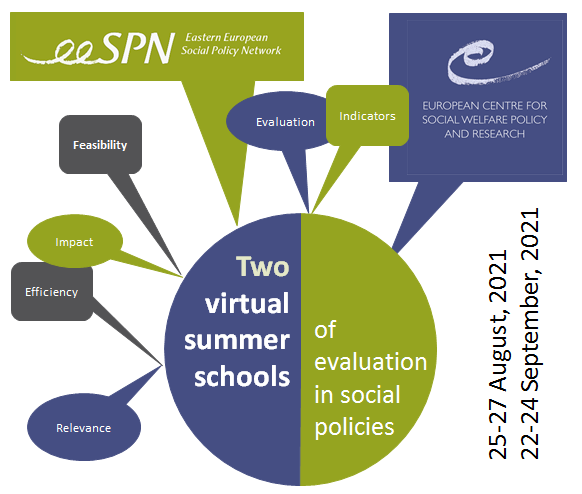New information on the policy framework 2019 of Ukraine
The Ministry of Social Policy of Ukraine informs on the policy framework 2019 and gives a good practise on Social protection of families with children. Read more in the Country fact sheet.

The Ministry of Social Policy of Ukraine informs on the policy framework 2019 and gives a good practise on Social protection of families with children. Read more in the Country fact sheet.
The main focus in the field of social development in 2019 focused on the following tasks:
creating a supportive environment for persons with disabilities;
social support for families in difficult circumstances and other categories of population;
creation of conditions for providing a decent old age for the elderly, development of the pension insurance system;
ensuring the protection of children’s rights.

Meta-evaluation is an “evaluation of evaluations” to improve future evaluation work. As a highly relevant topic for professionals working in social policy, the third module of the virtual Bridge-Building Summer School of Evaluation in Social Policies (August 25-27, 2021) was about meta-evaluation and evaluation standards in social policy.

Since declaring the existence of a state of emergency on 18 March 2020, the Government of North Macedonia has swiftly introduced a series of temporary measures to prevent and mitigate the negative economic and social consequence of the crisis caused by the COVID-19 pandemics. Until now, in addition to the public health prevention measures, three packages of Governmental measures have been put in use…
According to Ukrainian legislation social services are provided from municipal social protection departments for free to old lonely people without any mental health problems. Old people suffering from mental health problems must be cared for from special agencies. Unfortunately, these agencies do not exist, yet.

The BB Summer School takes place on 25-27/8/21 as part of the Bridging Function of the European Centre. It aims to enhance skills and knowledge in commissioning and/or conducting social policy-oriented Monitoring and Evaluation projects and programmes. The BB Summer School will stimulate an interactive, participatory, and reflective learning among the participants and it will…

Eurofound has just published the working life in Albania country profile prepared by our colleague Sonila Danaj.